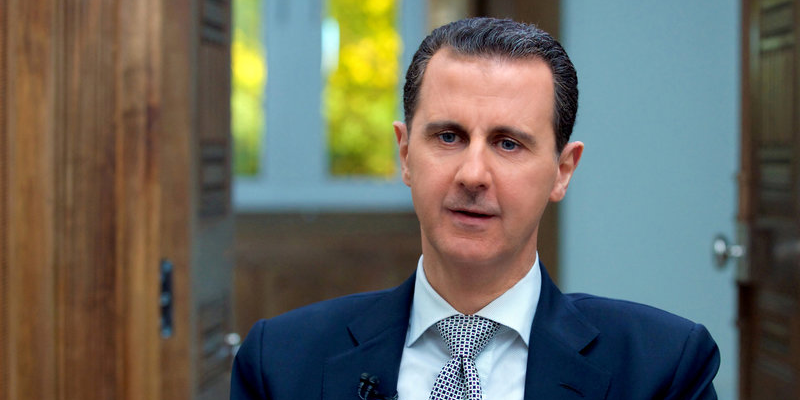- The Pentagon said the US-led military campaign on Syria took out the “heart” of the country’s chemical weapons program – but that Syrian President Bashar al-Assad still maintains “residual” capacity.
- The US was also worried that the strikes would prompt a confrontation with Syria’s biggest military ally: Russia.
- But the Pentagon said that worry had eased after the US learned that the Syria strikes had not resulted in any Russian casualties.
The Pentagon said Saturday that a series of military strikes on Syria carried out by a US-led coalition struck at the “heart” of Syria’s chemical weapons program.
Director of the Joint Staff Lt. Gen. Kenneth McKenzie confirmed that Syrian President Bashar al-Assad still maintains “residual” capacity.
The US, UK, and France carried out a joint operation on Friday night targeting three research facilities in Syria thought to have been involved in the production of chemical weapons.
The military campaign was in response to a devastating chemical attack in the rebel-controlled Damascus suburb of Douma, which killed dozens of people earlier this month. The attack is believed to have been ordered by the Syrian government.
Defense Secretary Jim Mattis did not say whether he believed the strikes would deter Assad from using chemical weapons again.
"Nothing is certain in these kinds of matters," he said. "However, we used a little over double the number of weapons this year than we used last year. It was done on targets that we believed were selected to hurt the chemical weapons program. We confined it to the chemical weapons-type targets."
President Donald Trump on Saturday praised the US military, the UK, and France for the operation.
"A perfectly executed strike last night," Trump tweeted Saturday morning. "Thank you to France and the United Kingdom for their wisdom and the power of their fine Military. Could not have had a better result. Mission Accomplished!"
The joint military campaign drew a swift and harsh response from Russia, a key Syrian ally and its strongest partner. Russia has several military bases and thousands of troops in Syria, and the US said Friday that it did not coordinate with or notify Russia of the strikes.
The Kremlin has repeatedly dismissed the allegations against Syria and said its own experts found no "trace of chlorine or any other chemical substance used against civilians."
One major concern the US had was that the Syria strikes would prompt a direct confrontation between Washington and Moscow, whose relations have been spiraling downward. But the Pentagon said on Saturday that worry had been eased by the fact that there were no Russian casualties as a result of Friday's military campaign.
Following the strikes, Russia called for an emergency meeting of the UN Security Council to address the military campaign. A Security Council diplomat said the body would meet later Saturday.

